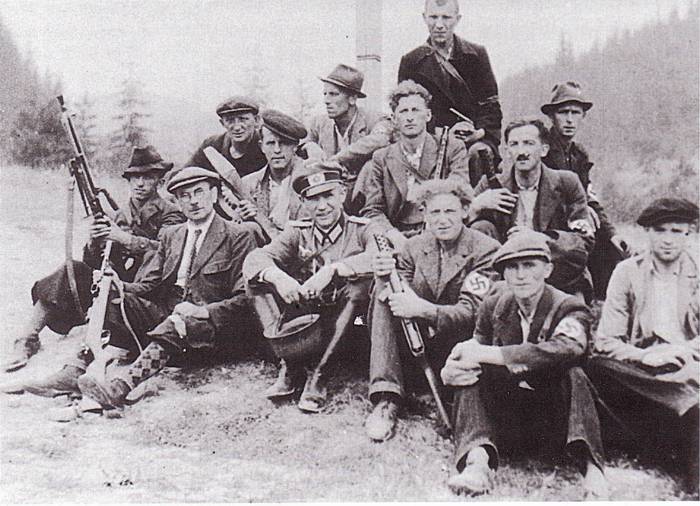The Man Who Accidentally Started WW2 Five Days Too Early September 9, 2012
Author: Beach Combing | in : Contemporary , trackbackThe last days of August 1939 were particularly painful for the leaders of the western democracies and their allies. Though most Poles, Britons and French citizens out in the streets did not realise it, the signing of the pact between the Soviet Union and Germany, 23 August, meant that the war had as good as begun: Poland would soon be attacked and that would lead to a European and then a world conflict. The Germans set their invasion for the 26 August, then halted the attack when Britain and France seemed willing to compromise over territory, only to reschedule it for 1 September when the two western democracies decided, instead, to stand by Poland. The order to delay fed down the command structure and the German troops were able to spend a few more days in barracks. Only, someone forgot to tell Lieutenant Hans-Albrecht Herzner…
Hans-Albrecht Herzner was a German commando leader who had been loosely involved with plots against Hitler in 1938. And H-AH would go on, in the war, to work in a Ukrainian German formation: Nachtigall. He died in September 1942, Beach has been unable to source how, drbeachcombing AT yahoo DOT com though the usually reliable Andrew Roberts claims he had swimming therapy for a broken back and drowned. This sounds a particularly unlikely death. Perhaps Hitler found out about his early flirtation with the German resistance?
H-A H is remembered, today, above all, for almost accidentally starting the Second World War five days before Hitler’s planned invasion date. Hitler’s decision to call off the war had been a very last minute thing and the message did not make it to H-A H’s special formation on the border. As a result H-A H took twenty four men dressed in civilian clothes – Hitler’s hatred of partisans, bandits and commandos did not extend to his own army – to capture a key Polish tunnel (Jablonkowska Pass) and train station (Mosty). This was on the line from Vienna and if the Poles blew the tunnel they would greatly impede German attacks into southern Poland.
In purely military terms – before we even start on the political implications – H-A H’s efforts were farcical. He crossed into Poland from Slovakia just after midnight and would return to Germany about twelve hours later, after the German high command got a message to him explaining that he was fighting a nation of 38 million with two dozen men. He lost about a third of his troops in the woods on the way to the station: it seems they were pixy-led away. He captured the station without too much ado, but a brave Polish telephonist managed to get word through to the army that an attack was on. At this point Polish machine gunners moved up, though the Poles resisted the temptation to blow the tunnel. Then H-A H and his remaining men attacked the tunnel itself. The Germans seemed to have had too few guns, making, nevertheless, a daring attack mounted on a locomotive. The Poles, meanwhile, were stubborn. And, in any case, just as both sides were getting serious the news arrived that there was no war and H-A H retreated in good order, passing back into Slovakia.
The results? The German commander of the Seventh Infantry, Eugen Ott, had to apologise to his opposite number in Poland: H-A H, he explained, was mad (and presumably his 24 men as well?). H-A H was eventually given the Iron Cross for his actions, though the army was reportedly unhappy about awarding a medal for an action that took place in peacetime! And, most importantly, the Poles had any last illusions about German intentions blown away. It is satisfying, if hardly surprising after these shenanigans, to report that the dynamite under the pass went up at 6.00 am on 1 September, seriously impeding German movements from Slovakia and ‘Austria’ into Poland.



